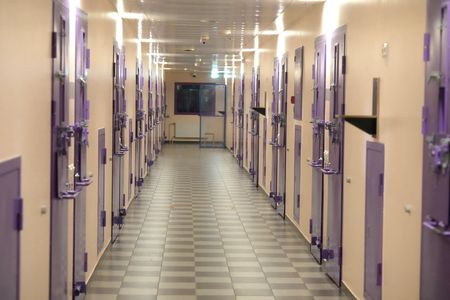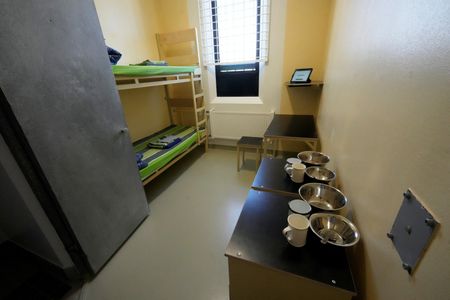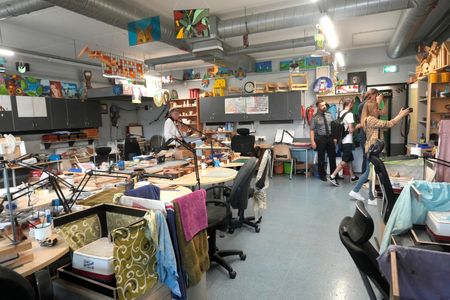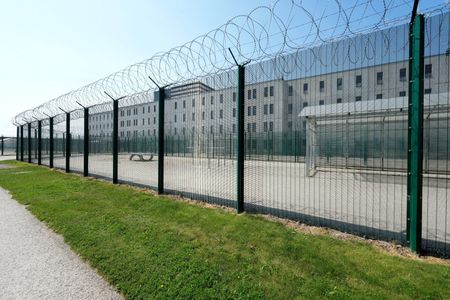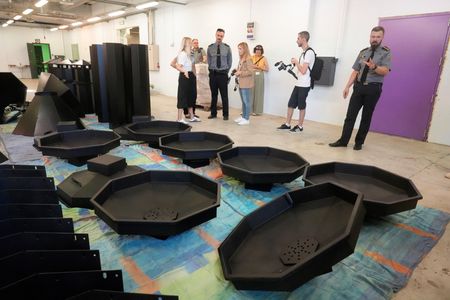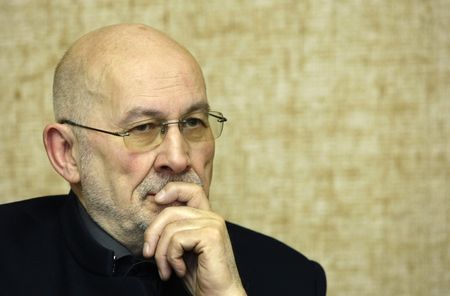By Andrius Sytas
TARTU, Estonia (Reuters) -Estonia showed off some of the many empty cells in its Tartus prison on Wednesday as officials outlined how they would implement a proposed agreement for Sweden to send up to 600 inmates to the facility from late next year.
The inter-governmental deal, which has yet to be approved by either country’s parliament, is one of many plans worldwide to tackle prison overcrowding – a critical challenge in a third of European countries according to a report published this month.
With around 600 of 933 places in Tartu Prison vacant, officers showed journalists around the facility, completed in 2002, as part of efforts to promote the idea locally as well as to the public across the Baltic Sea in wealthier Sweden.
Sweden will pay 8,500 euros a month per inmate in Estonia saving on the average 11,500 euros a month cost in Sweden.
Estonia will make its own checks of prisoners selected to be sent to Tartu, and will have right to send prisoners back, said Rait Kuuse, head of Estonian Prison and Probation Service.
“We don’t take those who are organisers in organised crime networks, who adhere to radical extremism,” he said.
Some people in Tartu, Estonia’s second biggest city after the capital Tallinn, believe the scheme will bring jobs and a boost for the economy while others fear a negative effect on the local community, he said.
Certain prisoners would be excluded from transfer, Martin Gilla, Head of Office for International Affairs at Sweden’s Prison and Probation Service told Reuters.
“We will not send juveniles, we’ll not send women. That’s one thing that we have come up with. We will also not send people that have been convicted for the worst crimes as well and have high risks,” he said.
Estonia is one of the few European countries to have recorded a drop in its incarceration rate, which declined 12% last year from 2023, while Sweden, where gang-related violence has increased, recorded a 15.5% rise over the same period.
The rate, published in the report by the continent’s leading human rights watchdog, the Council of Europe, records the number of prisoners per 100,000 inhabitants.
Gilla said Sweden, which had a prison occupancy rate of 141% in May, was increasing capacity and has considered options such as prison barges, but that idea was eventually dropped.
At Tartu, the prison interior was painted in bright yellow and violet, with wooden furniture and bunk beds. There were art and music rooms and Knuse said inmates would have access to tablets for videocalling their families at home.
Issues still to be resolved include rehabilitation programmes, challenges related to visiting by family and friends, and assuring the right to exercise religion.
The plans are among many such ideas in the region. Belgium and Norway have in the past hired prison places in the Netherlands, while Denmark signed a deal with Kosovo in May 2024, a move criticised by Danish human rights experts.
Finland appointed a working group in November to look into the possibility of renting prison places abroad.
(Reporting by Ints Kalnins, Andrius Sytas and Marie Mannes, Essi Lehto writing by Krisztina Than, editing by Philippa Fletcher)

